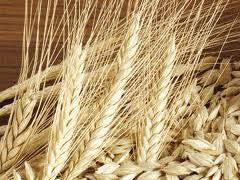100% Italian DRESSED FARRO DICOCCO
Have a question?

100% Italian DRESSED FARRO DICOCCO
Dettagli
Emmer wheat ( Triticum dicoccum ) is a variety of wheat or Triticum . The Triticum genus includes annual plants native to Asia Minor, cultivated for over 10,000 years for food purposes in various cross-bred varieties.
Emmer, also known as farro or emmer, is a cereal grain, a close relative of wheat. It is one of three species of the Triticum genus commonly called farro.
The term farro includes three varieties: Triticum monococcum , Triticum dicoccum , and Triricum spelta . Of the three, Triticum dicoccum is the most widespread in Italy.
Farro dicocco is a dressed wheat, that is, a cereal whose caryopses still have the glumes or glumettes, unlike soft wheat and durum wheat.
Emmer wheat was cultivated as early as the fourth millennium BC in Egypt. From Egypt, emmer wheat reached Italy, where it remained the most widespread and cultivated grain throughout the Roman period and, subsequently, into the Middle Ages, until the discovery of America.
Emmer wheat is a hardy plant, able to adapt to soils and temperatures where the production of other cereals is difficult. Furthermore, emmer wheat is less susceptible to the diseases that normally affect wheat plants and competes better with weeds.
Farro also contains proteins and a negligible amount of lipids. Finally, farro contains minerals, particularly phosphorus and potassium, and modest amounts of niacin (vitamin B3). Regarding the energy content of farro, 100 grams of product provides 330-340 kcal.
Farro grows even on nutrient-poor soils, in hilly areas between 300 and 1,000 meters above sea level. Sowing takes place in autumn. The plant is robust, resistant to cold, disease, and pests.
The harvest, later than that of wheat, is carried out in the summer with the normal machines also used for combining wheat.
The peculiarity of spelt is that the seed, at the end of the threshing process, still retains its protective covering (glumette), which is why it requires a further processing phase (called "husking" or "polishing").
The yield of polished product is approximately 60-70% of the initial product.


